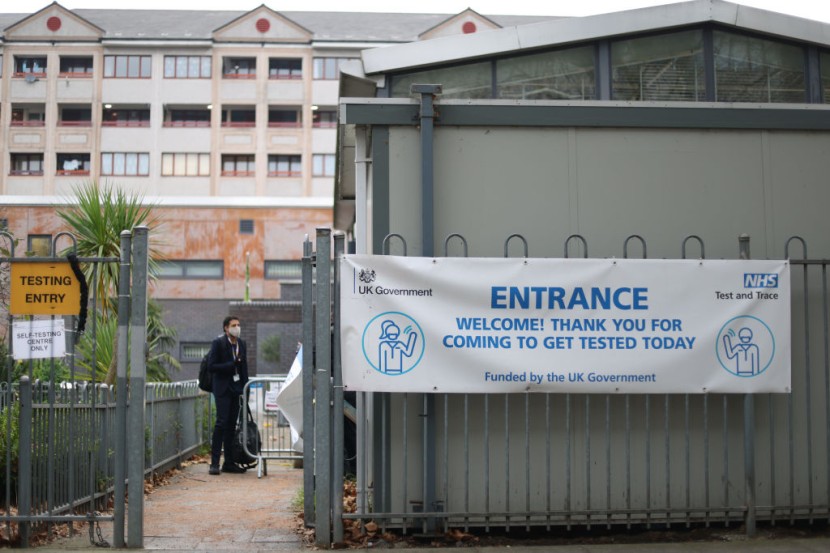
Europe's plan to normalize COVID-19 infections like flu or measles remains at odds with some countries despite the Omicron variant's indication of causing less harm.
When the COVID-19 pandemic was initially announced, Europeans were instructed to stay at home for more than three months. They were not permitted to go outside for weeks. Playgrounds were closed, and the economy was essentially halted.
Officials, on the other hand, hailed the severe measures for keeping the healthcare system from completely failing. They claimed that lives had been saved. Hence, Spain is now prepared to follow a revised COVID-19 strategy, almost two years later.
Europe considers new COVID-19 strategy
The government is building the framework to tackle the next infection spike, not as an emergency but as a sickness that is here to stay, with one of Europe's highest vaccination rates and one of the most pandemic-battered economies. In neighboring Portugal and the United Kingdom, similar moves are being considered.
The aim is to transition from crisis to control mode, much like how countries cope with flu or measles, and to address the virus in a similar way. Accepting the possibility of infection and giving additional care for those who are at risk or have difficulties are a good way to go.
Now that the spike of the Omicron variant has indicated that COVID-19 is becoming less harmful, Spain's center-left prime leader, Pedro Sánchez, wants the European Union to adopt similar adjustments. According to the World Health Organization, it is too early to make any urgent changes. Although there are no precise criteria for classifying COVID-19 an endemic illness, the organization's experts have previously stated that it will happen when the virus is more predictable and there are no long-term outbreaks of the virus, according to Los Angeles Times.
During the World Economic Forum on Monday, Dr. Anthony Fauci, the country's top infectious disease doctor, said COVID-19 would not be called endemic until it reached "a threshold where it does not affect society." After the pandemic's acute phase is finished, the European Centre for Disease Prevention and Control has encouraged nations to begin addressing COVID-19 in a more normal manner.
In addition to Spain, the agency stated that "a more long-term, sustainable monitoring approach" will be desired by other EU countries. Two doses of vaccine have been given to just over 80% of the population in Spain, and officials are working to improve adult immunity with a third dosage.
According to Dr. Salvador Trenche, the head of the Spanish Society of Family and Community Medicine, which has led the call for a new endemic response, vaccine-acquired immunity, combined with widespread infection, offers a chance to focus prevention efforts, testing, and illness-tracking resources on moderate- to high-risk groups.
COVID-19 "must be treated like the rest of the ailments" and that health professionals' "normalized attention" would assist to speed up the treatment of problems that aren't connected to the coronavirus, as per AP News.
Normalizing COVID-19 is still at odds in some European countries
The huge number of omicron infections has forced several governments to abandon intensive testing and shorter quarantine periods, particularly for employees who just have cold-like symptoms. Since the start of the year, lessons in Spanish schools have been suspended only when severe outbreaks occured, unlike when the first case was recorded.
President Marcelo Rebelo de Sousa of Portugal, which has one of the world's highest vaccination rates, declared in a New Year's speech that the country had "moved into an endemic phase," but the debate over specific measures quickly waned as the spread quickly accelerated to new highs - nearly 44,000 new cases in 24 hours reported Tuesday.
In the immunized globe, however, hospital admissions and mortality are significantly fewer than in prior surges. The wearing of masks in public places and the use of COVID-19 passports in the United Kingdom will end on January 26, according to Prime Minister Boris Johnson, who said the latest wave had "peaked nationwide."
The rule that infected persons isolate for five days is still in place; but if the virus data improves, Johnson said he'll try to get rid of it in the coming weeks. According to official figures, 95% of the British population has produced antibodies against COVID-19 as a result of infection or immunization.
The notion of normalizing COVID-19 is at odds with the efforts of several other European governments to increase immunization among those who are hesitant to get vaccinated. Comparisons to Spain or any other nations are being rejected in Germany, where less than 73 percent of the population has received two doses and infection rates are breaking new records every day.
All persons over the age of 50 are required to get vaccinated in Italy, and those who refuse to receive vaccination are subject to fines of up to 1,500 euros if they show up at work unvaccinated. To use public transit, aircraft, gyms, hotels, and trade shows, Italians must also be fully vaccinated, Fox26 Houston reported.
@YouTube








